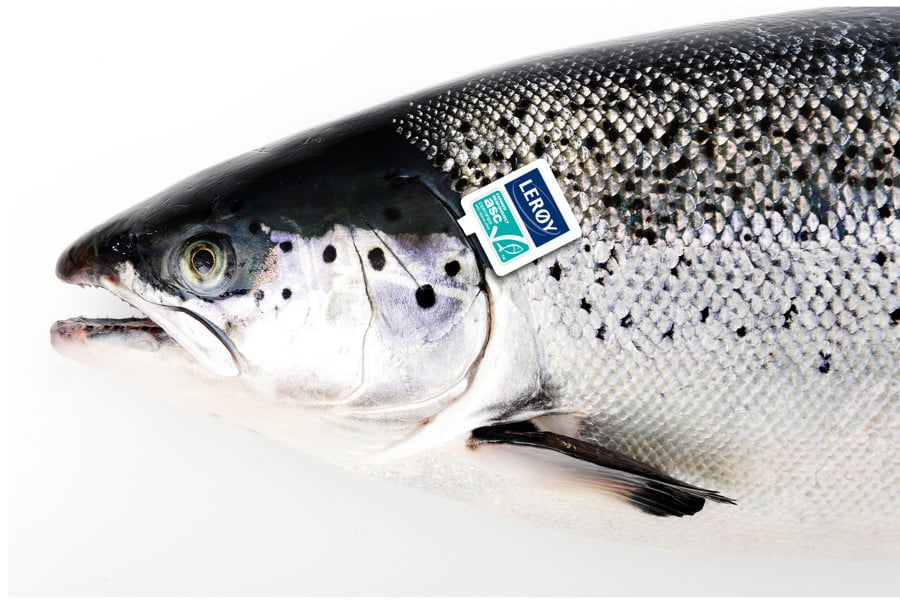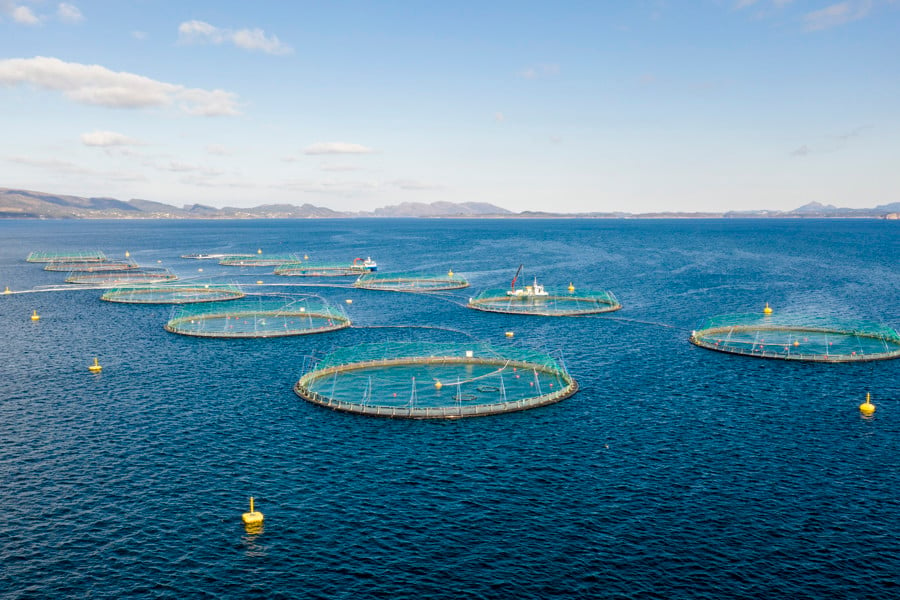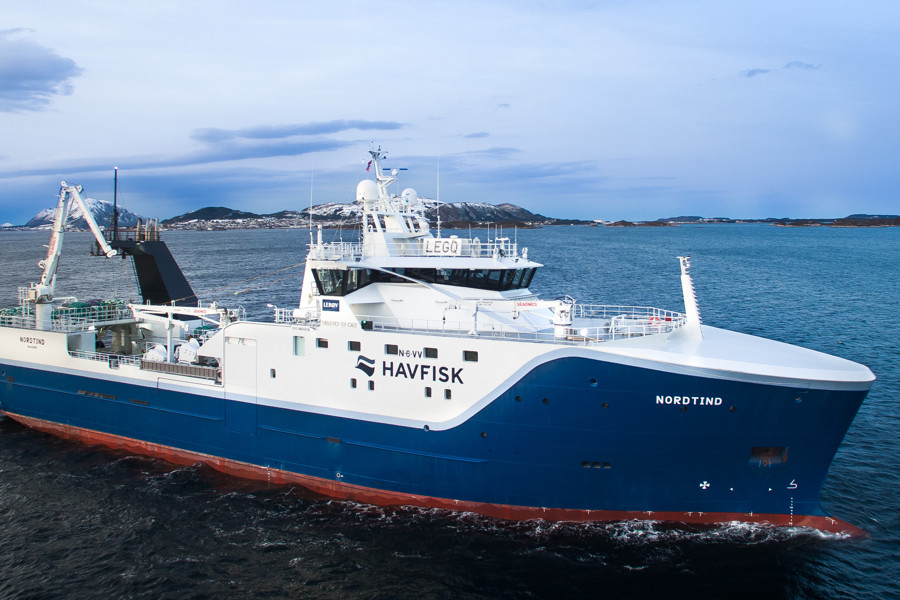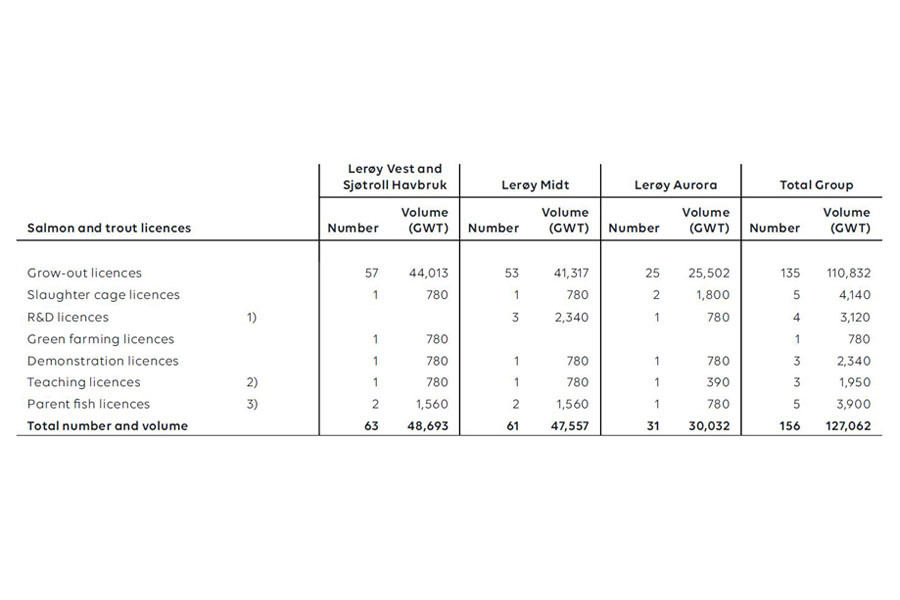-
SEARCH
Type your search in the field above

Lerøy Seafood Group has been involved in the development of the ASC-standard since 2004. In 2013, Lerøy Seafood Group was the first company worldwide to have a farm certified according to the ASC standard. Since then, numerous Lerøy farms have achieved ASC-certification, ASC-certification guarantee that our aquaculture operations are conducted in an environmentally sound and sustainable manner. Our product handling units (harvest and processing) also undergo audits to ensure traceability for certified products.
The main principles in the ASC standard are:
Lerøy continues to increase the number of certified farms. Moreover, all sites operate in accordance with the requirements that apply in the ASC-standard.
By the end of 2022, 69 % of our production capacity is ASC – certified
By the end of 2022, 69 % of our production capacity is ASC – certified.

|
|
Target |
2022 |
2021 |
2020 |
2019 |
|
Share of locations with GGAP or ASC certification |
100% |
100% |
100% |
100% |
100% |
Global G.A.P
GlobalG.A.P. is a standard that promotes measures that ensure food safety, minimal environmental impact with consideration to the biodiversity, and compliance with animal welfare and workers’ health and safety requirements. The standard covers the production process from roe stage to fish slaughter, and ensure traceability of certified products troughout the harvest, processing, sales and distribution.
The main principles in the GLOBALG.A.P. standard are:

Globally, overfishing is unfortunately more the rule than the exception, and in addition, the discarding of fish represents a large unknown factor. So-called UUU fishing (illegal, unreported and unregulated fishing) is a major problem worldwide.
Our operations within fisheries are based on fish as a natural resource. We therefore rely on proper management of the various species in the sea. For Lerøy to operate from a perspective of perpetuity, the marine natural resources must be managed sustainably. This means to maintain the natural dynamics of fish stocks and ecosystems so that fishing is sustainable
Contribute to the long-term sustainability and improvements of global fish resources.
Lerøy support the MSC program. The MSC recognizes well-managed and sustainable fisheries through a certification programme. The MSC sets principles and criteria for sustainable fisheries which are used by a third party and voluntary certification programme.
The MSC recognizes well-managed and sustainable fisheries through a certification programme. The MSC sets principles and criteria for sustainable fisheries which are used by a third party and voluntary certification programme.
These principles are:
Norway has a long tradition of sustainable fisheries management. Lerøy supports Norway's fishermen's association in working to document and increase the proportion of fisheries that meet the strict criteria relating to the stock situation, ecosystem impact and management practices in the MSC's fisheries standard. In 2022, Norwegian fishing for redfish and blue halibut was certified according to the MSC.
In 2021, cod and haddock fished within 12 nm of their MSC lost their certification. Lerøy supports Norway's fishermen's association with resertifying cod and haddock within 12 nm, most likely this will happen in 2024
Lerøy has target figures for the proportion of catch that comes from fisheries that have met the strict criteria related to the stock situation, ecosystem impact and management practices.
In 2022, the share of catches with MSC certification was 95%, compared to 93% in 2021. The reason for the increase is MSC certification of the Norwegian fishery for turbot and blue halibut in 2022. The fisheries have shown that they meet the strict criteria related to the stock situation, ecosystem impact and management practices in MSC's fisheries standard
|
|
Target |
2022 |
2021 |
2020 |
2019 |
|
Share of wild caught fish with MSC certification |
93% |
95% |
93% |
86% |
91% |
MSC (MARINE STEWARDSHIP COUNCIL)
The MSC recognizes well-managed and sustainable fisheries through a certification programme. The MSC sets principles and criteria for sustainable fisheries which are used by a third party and voluntary certification programme.
The MSC recognizes well-managed and sustainable fisheries through a certification programme. The MSC sets principles and criteria for sustainable fisheries which are used by a third party and voluntary certification programme.
These principles are:
Lerøy’s strategy is to support well-managed and sustainable fisheries and increase the share of certified fish.
MSC-certification of cod & haddoch within 12 nautical miles lost its certification in 2021 while outside 12 nm is still valid. There is considerable effort from the Norwegian fisheries management authorities to address the management of the coastal cod fishery. Its unknown when MSC certification within 12 nm will be obtained, but can take several years.
Lerøy with its integrated value chain will be less affected by the fact that haddock within 12 nautical miles will not receive an extended MSC certificate. Several of our purchasing and production facilities are located in Finnmark, the most northern part of Norway that are closest to the fishing banks outside 12 nautical miles. They are all suited to buy fresh fish caught outside of 12 nautical miles from both external Lerøy partners as well as fresh and frozen fish from our own trawler fleet in Lerøy Havfisk.


1) Research licences are time-limited with a duration of three years, from time of project start. The licences have zero purchase price, and therefore no depreciation. The R&D licence allocated to Lerøy Aurora in the table above legally belongs to Akvaplan Niva (third party), but is operated by Lerøy Aurora.
2) The teaching licences are considered time-limited with a duration of 10 years. The licences have zero purchase price, and therefore no depreciation. The teaching licence allocated to Lerøy Aurora in the table above legally belongs to Troms- og Finnmark Fylkeskommune (third party), but is operated by Lerøy Aurora. The licence allocated to Lerøy Sjøtroll legally belongs to Hordaland Fylkeskommune (third party), but is operated by Lerøy Sjøtroll.
Lerøy Seafood Group operates several special production sites/licenses to assure innovation regarding sustainability.